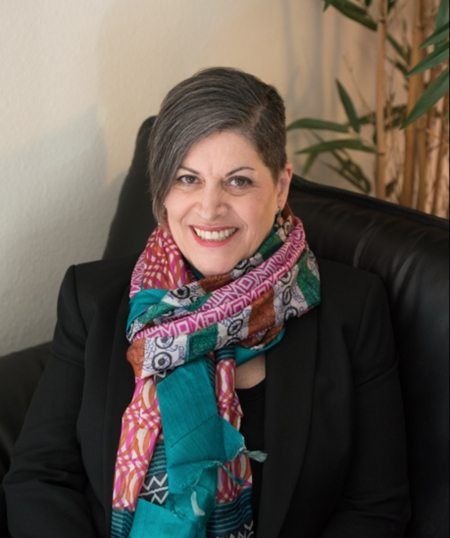Think of your story—and everything that contributes to it—your past, your partners, your kids, your health, your job, your social circle, your age. Now, think of how one little switch in the coding of your story affects your sex life.
Sometimes, it’s hard to see the entire picture when looking at it up close, but once you take a few steps back, you can connect the dots and better understand the challenges, especially when it comes to sexual problems.
Sexual problems are often complex. Think of them as trees and deep below them is a network of roots. Those roots represent our story, our make-up, and the challenges we face, whether it be physically or mentally.
As therapists and counselors, we see clients all the time with sexual problems. It’s easy for them to not only feel alone in their pain but also responsible for how these challenges take hold of their relationships. It’s our job to highlight the complexity of these problems—to show our clients how instrumental it can be to communicate with their partners about their challenges.
Let’s take a look at a part of a woman’s life that’s just as natural as menstruation...menopause! Whether it’s Sex & the City or the Golden Girls, popular culture doesn’t ever shy away from shaming women for this normal part of life. In these TV shows, it’s always “embarrassing,” as the main star whispers to her friends that she’s officially “old” and can forget about ever having a sex life again.
In some ways, we’ve all sort of come to accept this in society. A woman goes through menopause, her hot flashes, night sweats, and lack of libido make intercourse painful and uncomfortable, so intercourse comes to a crashing halt. That woman is now post-menopausal and is no longer viewed as a sexual being.
Now, with our therapist and counselor hats on, let’s unpack this false notion. What else could be contributing to sexual decline for women in menopause? Could it be exhaustion, something we experience during all stages of life? Could it have something to do with their partners?
A recent study in the medical journal Menopause surveyed 24,000 heterosexual women between the ages of 50 and 74. These women, who were taking part in an ovarian cancer screening study, were asked a variety of questions about their sex lives. Their responses prove that there is a missing link in our understanding of sexual problems and why they are not communicated in relationships.
78% of the women surveyed said they had an intimate partner, but fewer than half the women had active sex lives. Where was the disconnect? Well, much of it came from a lack of communication.
37% attributed their sexual decline to the loss of a partner through death or divorce. But the remaining statistics serve the greatest lesson. Some women listed exhaustion, lack of interest, and health challenges as the main reasons for the decline in their sex life—and that goes for both partners.
So, when we look at the facts, it doesn’t prove that women are ready to throw in the towel after menopause. It shows that, just like any stage of life, things get complicated! As therapists and counselors, how do we help our clients navigate new terrain? How do we help them open up those walls to communicate with their partner?
How would it transform our clients’ sex lives if they were able to say:
“I want to be intimate, but it never seems to be the right time. How can we work through this?”
“Your chronic pain has taken a toll on our life in the bedroom, and I want to work together to bring back the passion. I miss you.”
“I have a lack of interest in sex, and I don’t know why. Do you want to try and work on this with me?”
Now, think of the broad range of sexual problems that affect our clients and how opening those lines of communication could be an incredible first step.
Understanding the entirety of human sexuality is critical in treating sexual issues! If you’re a licensed psychotherapist or student/intern in a program leading to a degree that allows you to become a licensed psychotherapist, you’ll want to take a look at the AASECT-approved Blended Learning Program.
If you want high-quality learning in a convenient format, this is a program for you. In a year, you can earn 150 credits in sex therapy training, all of the education you need for sex therapy certification by the American Association of Sexuality Educators, Counselors, and Therapists!
Click here to learn more!
 Subscribe to my newsletter and receive your free guide, “Assessing Sexual Issues".
Subscribe to my newsletter and receive your free guide, “Assessing Sexual Issues".
We never sell your information, promise.
